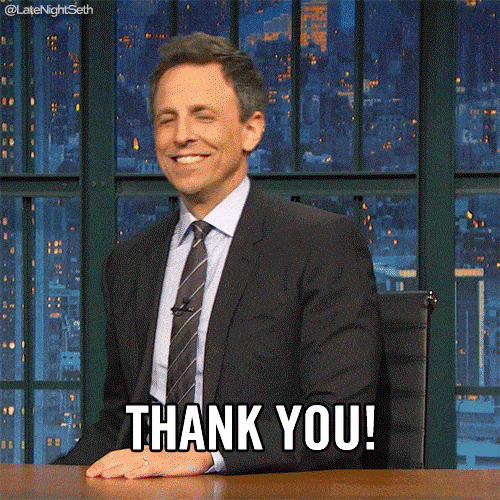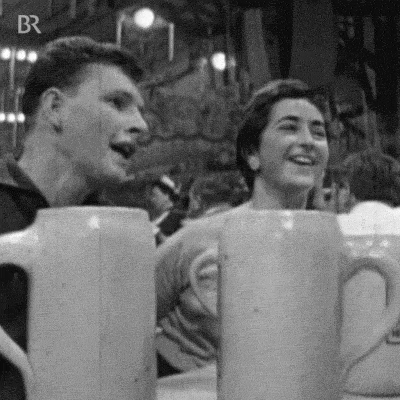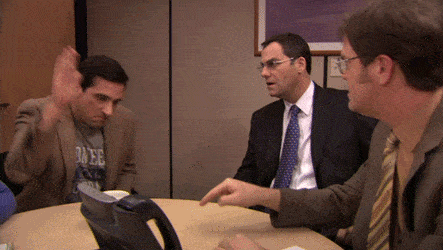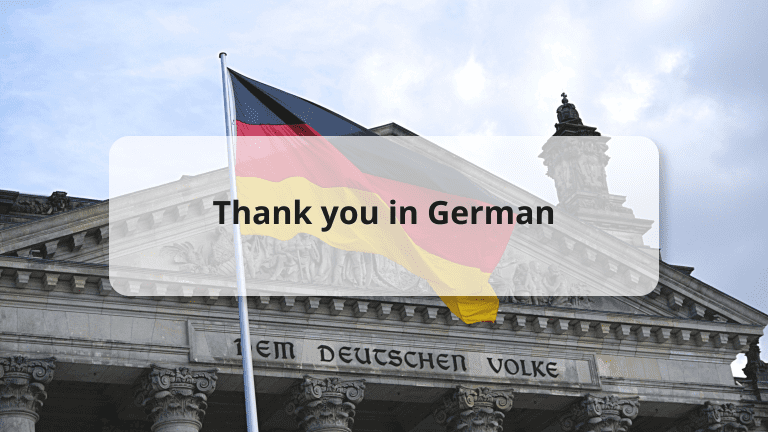German etiquette outshines the rest of the world, so learning how to say thank you in German is just the tip of the iceberg. An integral tip nonetheless.
Learning how to express gratitude in any foreign language is of the utmost importance. Sure you could probably get away with an English ‘thank you’ but it is more than just a matter of being polite. Being able to say thank you in the language of the country you are visiting shows a sign of respect towards the culture and the people of the country you are visiting.
If there is one thing the Germans are known for it is their dedication to punctuality and formality. Courtesy plays a critical role in both the customs and language of German culture. If you know the English language then you would know that there are multiple variations for expressing gratitude.
“Thanks” and “I’m eternally grateful to you” mean vastly different things. The German language makes no exception. people will expect a certain level of gratitude in interactions depending on how well you know them and what your relation to them is.
By the end of this article, you will feel confident in being able to say thank you in German depending on the situational etiquette and how to respond to gratitude shown to you.
Danke – Thank you / Thanks
If you’re only interested in learning one phrase. Of which you’re not, otherwise you wouldn’t be reading this article. This is a one-size fits all sort of way to say thank you in German.
Danke is considered casual although it can also be used in formal situations where appropriate. If you want to say thank you in German for something minor, people who you are less familiar with wouldn’t find it rude.
With regards to the German pronunciation of the phrase, Danke is pronounced [Dahn-keh] with a long “a” sound.

Dankeschön! – Thank you kindly!
Still keeping it casual but let’s up the formality. Danke schön spices up your German and expresses a higher level of gratitude compared to a simple ‘thanks’.
It’s often used in more formal situations such as business transactions but it is often still used amongst friends.
Bonus: Danke sehr is a more formal variation of Dankeschön but it can be used interchangeably with danke schön. Our advice would be to trust your gut in choosing which one to use. take into consideration the way you talk to other people and your personality.
Vielen Dank – Many thanks
The English translation of this phrase truly doesn’t convey the depth of appreciation it implies. This phrase is considered even more formal than dankeschön or danke sehr. If you are truly grateful for any help you have received and want to come across as genuine and heartfelt it would be the perfect moment to say thank you in German using “Vielen Dank!”.
If you would like to go the extra mile and express even more gratitude you can duplicate the Vielen, so it becomes Vielen, Vielen Dank which is just “Thank you very, very much”.
It is also used frequently as an email or letter sign-off.
Tausend Dank – Thanks a million
Let’s take a break from the formal. Tausend Dank is one of the least formal ways to say thank you in German. Although Tausend translates to ‘thousand’ in English which is less than a million it loses any weight in the sentiment. We’ve established that it is an informal phrase so it is generally used in informal situations like talking to friends or relatives. If a friend has bought you a beer at the bar you would say Tausend Dank before saying cheers in German.

Vergelt’s Gott! – God will reward you!
This one is a bit regional and wouldn’t usually be found in mainland Germany. But better safe than sorry. You would usually find this phrase said in mainly the southern region of Germany and Austria. Basically, regions that have historically been Catholic-inclined and whose religious history still shines through the local dialect.
It should go without saying that you should use this phrase with caution and be wary of using it in an uncertain company. The rule of thumb is to always remember to note who you’re speaking to before choosing what to say.
(Danke) sehr aufmerksam – (Thank you) That is very kind of you
The main part of this phrase is sehr aufmerksam. It expresses gratitude without technically saying thank you. If you need to thank an extraordinary person who has helped you when you were in trouble this is a heartfelt way to express gratitude that is implied rather than stated.
To ensure your gratitude, you can attach danke at the front. This comes off as a compliment as well as making it particularly pleasing for the recipient to hear.
Ich bin dir dankbar – I’m thankful to you
This phrase is rarely used but still good to know. If you aim to sound a bit more proper and grammatical then you can use this more graceful phrase. It’s not so straightforward but the key is to use the right pronoun. Depending on who you’re speaking to, the pronoun should change.
A quick rundown would be to use dir when talking to one friend or acquaintance, and euch when addressing a group of them, and for those who aren’t so close to you, you’ll use the pronoun Ihnen.
Danke, gleichfalls – Thank you, the same to you
If you want to both thank and offer someone the same well-wishes they give to you use Danke, gleichfalls. It is a common response when you agree with someone or want to extend the compliment that has been given to you. Gleichfalls by itself means “likewise,” but it can stand alone as a response meaning “you too” or “the same to you.” Although you’re still expressing that you share the person’s sentiment, Danke is what makes your response more polite.
Ich bedanke mich – I give you my thanks
This means I offer my thanks. It sends the message and makes you sound as sincere as you should be even though it may sound overly elegant and a bit stuffy.
The grammar may seem odd to non-native speakers as the pronoun ‘mich’ meaning “me” is used, and not ‘dich’ meaning “you”. That has to do with the verb. You have to think about the subject that’s performing the action.
Also, you’re the one doing the thanking, which means the correct pronoun to use is mich. Because it’s already implied that you’re thanking someone else, not yourself.
Ich möchte mich recht herzlich bedanken – I would like to sincerely thank you
What a mouthful. But don’t be deterred. Use it with the same confidence that you would use in English. This phrase is appropriate in a formal scenario or a professional setting as this statement is filled with formality. Herzlich is an adjective meaning “heartfelt”.
This phrase definitely carries a lot of sincerity appropriate to use when the person you’re speaking with has gone out of their way to help you.
Ich danke Ihnen – I give you my thanks
If you want to say thank you in German to someone this is one of the most formal ways. This expression is exceedingly polite and carries an air of humility to it. It is usually extended along with a handshake when you find yourself indebted to a stranger or acquaintance. It’s appropriate with people you are not close with as well as those who are your elders or seniors in age or rank. Basically for anyone who deserves a smidge more courtesy than most.
Ich danke ihnen – I give you my thanks (plural)
No this is not a mistake there really is a difference. Sure they may look the same and be pronounced the same but the German language is a stickler with pronouns. The nitty-gritty is that because of the overlap between third-person plural and second-person formal pronouns, this phrase can also mean “I thank them”. The difference between the two is that the previous version is spelled with capital and this version is spelled in lowercase.
Herzlichen Dank – A heartfelt thank you
This one works best used in notes and letters and things of that nature. It would be the akin to the English “thank you very much” or be received as a “hearty thanks”. This expression would be well taken in a plethora of situations be it formal or informal as it comes across with a cordial expression of gratitude filled with admiration.
Besten Dank – Best thanks
In German small differences in expressions change the way it is received and this is no exception. On paper, this expression seems exactly the same as vielen dank. But with the mention of ‘best’, this phrase becomes more heartfelt. We’ll say it again though, keep in mind when you want to use this phrase so that it comes off as sincere as opposed to sarcastic.
Wie nett von Ihnen / dir – How nice of you
This phrase should be used when someone goes out of their way to do something for you, as opposed to them fulfilling a request. Kind of like what we covered with sehr aufmerksam.
You would choose the right pronoun depending on who you are talking to. dir is for your friends, and Ihnen is for those of a higher rank than you or those whom you’re less acquainted with.

How to respond to thank you in German
- Bitte – You’re welcome
- Bitte schön / Bitte sehr – You’re very welcome
- Kein Problem – No problem
- Nichts zu danken – Nothing to thank for
- Gern geschehen / Gerne – Done gladly
- Jederzeit – Anytime

Dankeschön for reading
There you have it! The 15 best ways to say thank you in German using the perfect etiquette (and how to respond to them). If all else fails the phrase Danke will suffice but by using any of these other phrases you will be sure to impress whoever you talk to.
While you’re on your way to becoming a German expert try your hand at learning other types of Germanic languages, if you can speak English you’ve already mastered one.
If you’re looking to improve at a quicker rate, the best way to learn German is by finding the help of a tutor.
AmazingTalker has thousands of tutors that have helped over 2 million students reach their goals.
















